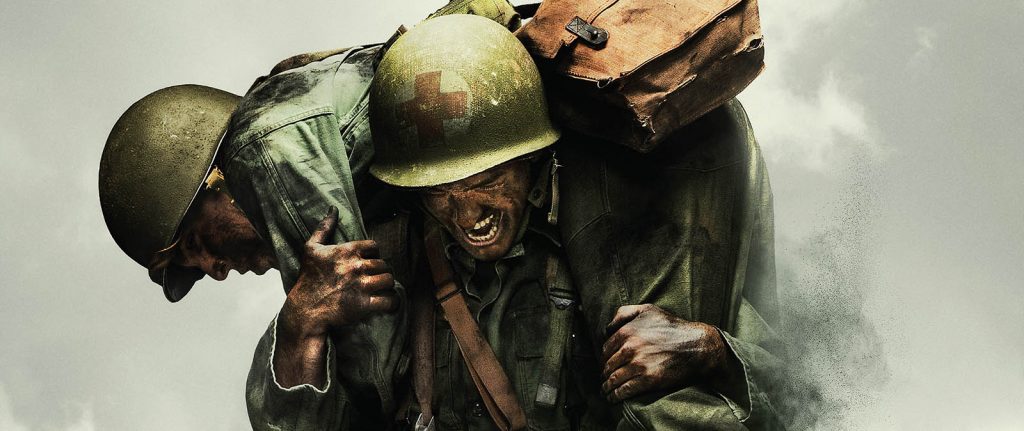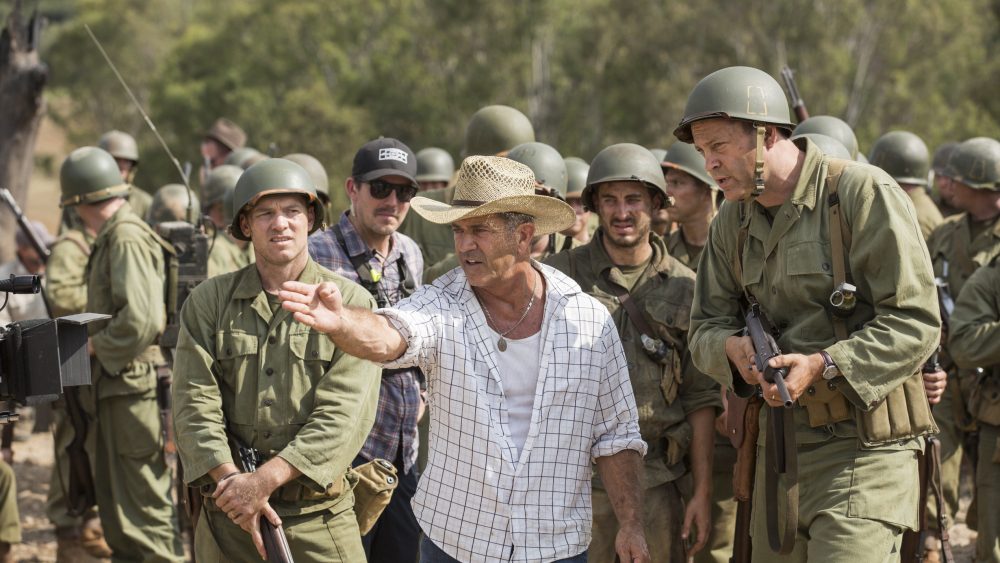Mel Gibson's Hacksaw Ridge goes to war for God
The true story of how far someone will go for what they believe in
Bodies blast through the air in a shock of blood, bone and dying breath. Bullets rain down. Smoke billows. Between grenades and screaming soldiers, one man rushes to the aid of his comrades. Although he’s on the frontline of a major battle during World War II, the US Army medic doesn’t carry a weapon. He refuses to. Yet he doesn’t refuse to serve his country or, most importantly, serve God.
At cinemas from November 3, Hacksaw Ridge is director Mel Gibson’s latest feature based on a true story of godly conduct in the face of deadly opposition. But unlike his phenomenally successful The Passion of the Christ, Hacksaw Ridge is a WWII drama about an everyday guy who set a remarkable example of sticking to his guns. Well, sticking to his Christian convictions about not bearing arms, which led Desmond Doss to enlist as a conscientious objector to war. A “conscientious co-operator,” as he puts it on-screen.
An old-school war movie in its look and feel (apart from the intense violence of its centrepiece battle), Hacksaw Ridge isn’t an anti-war movie. It’s not pro-war, either. Instead, it focuses upon what someone is willing to do for the God they serve, obey and trust. Even if it means putting their life on the frontline. And as Doss’ amazing life plays out, you’ll have to try hard to avoid thinking about how far you would be prepared to go for what you believe in.
Doss’ dad was a war veteran turned drunk whose abuse of his family helped to cement one of the Ten Commandments in his son. “Thou shalt not kill” hit Doss hard and, as Hacksaw Ridge depicts, he obeyed that to the point of pacifism during wartime. Yet Desmond (played with idealism and grit by Andrew Garfield) felt compelled to serve in the US army as a medic.
Doss combined the commandment to not take another’s life with Jesus’s call to love others as he loves…
A pacifist going off to war? Sounds contradictory and kinda cuckoo. That’s certainly what Doss’ superiors and platoon think, as they tease, harass and assault him during basic training. But Hacksaw Ridge shows how Desmond Doss was able to tackle tough situations while remaining true to his Christian convictions. He combined the commandment to not take another’s life with Jesus’s call to love others as he loves (John 13:34-35) – and didn’t budge from his desire to serve as an unarmed medic in a war-zone.
“The world is trying to tear itself apart. I want to help to put it back together a little bit,” Doss explains during a court-martial. For refusing to touch a weapon during training, he was charged with disobeying direct orders – and cowardice. Yet the courage and devotion to the lives of his fellow soldiers, which he would later display on WWII battlefields, became undeniable.

Intense violence on the battlefield of Hacksaw Ridge Mark Rogers1 License
While some audience members will be rightly repulsed by the major battle at the heart of Hacksaw Ridge, the barbarity of war is potently offset by Doss’ selfless zeal to save lives. He steadily prays God will provide “just one more” wounded man that he can drag to safety. For such heroism, Doss became the first pacifist to be awarded the prestigious Medal of Honor.
But walking away from Hacksaw Ridge only fired up about Doss’ superheroics is like enjoying sunshine while ignoring the sun. As the final moments of Hacksaw Ridge illustrate, Doss lived his Christian life in such a notable way that those around him noticed. And they started to wonder about who and what exactly Doss believed in. Because if who and what he believed in caused him to lead such a life, well, those just might be worth believing in.
Without telling others how to live or pushing his beliefs upon them, the Doss of Hacksaw Ridge combines faith and action into an unforgettable salute – to who and what he’s actively faithful to.



